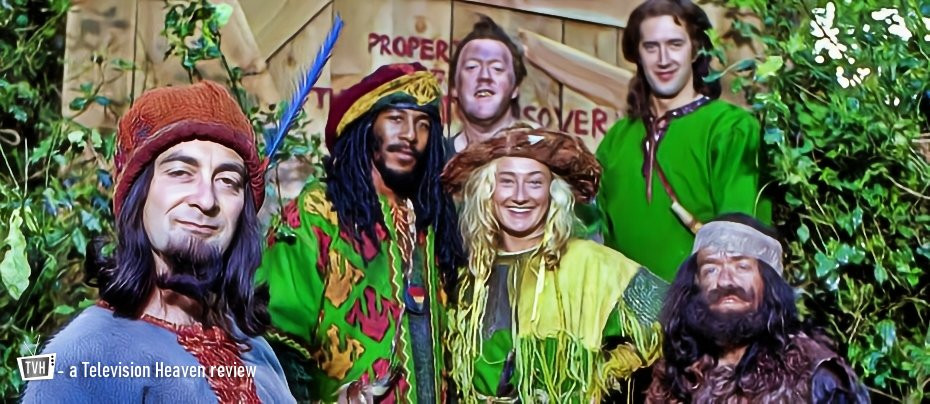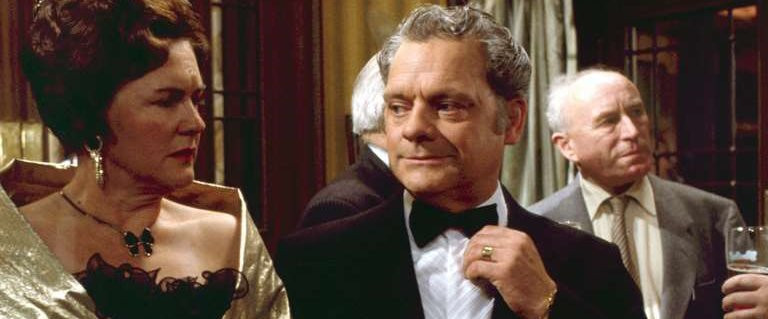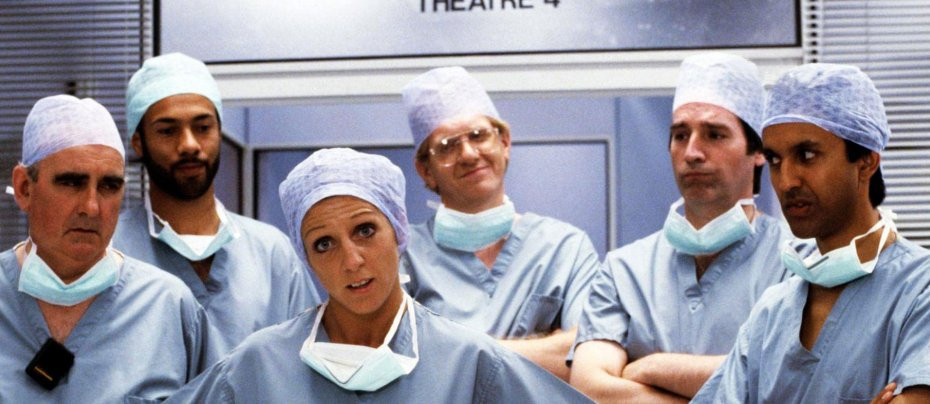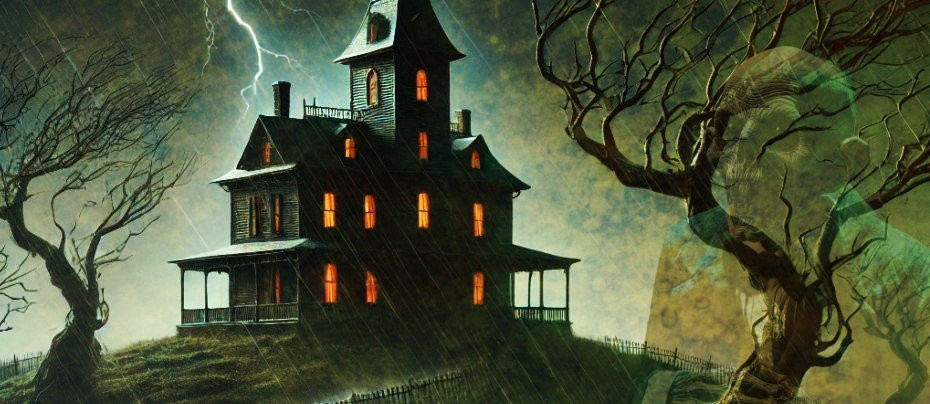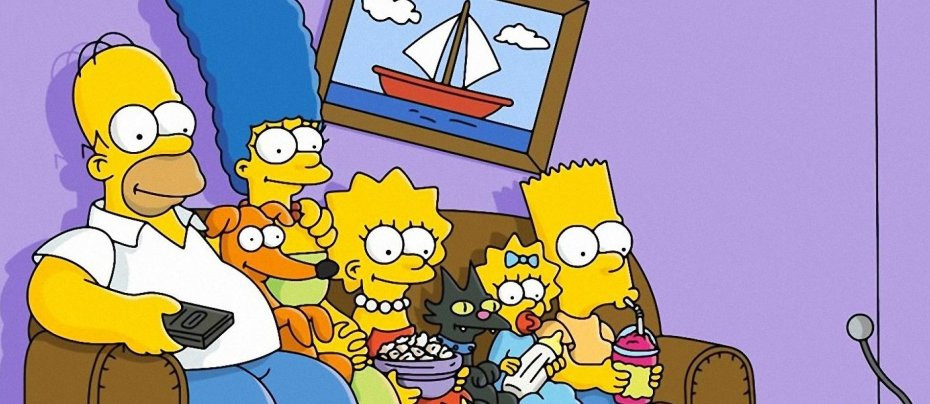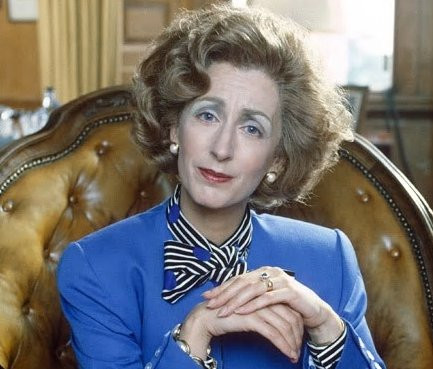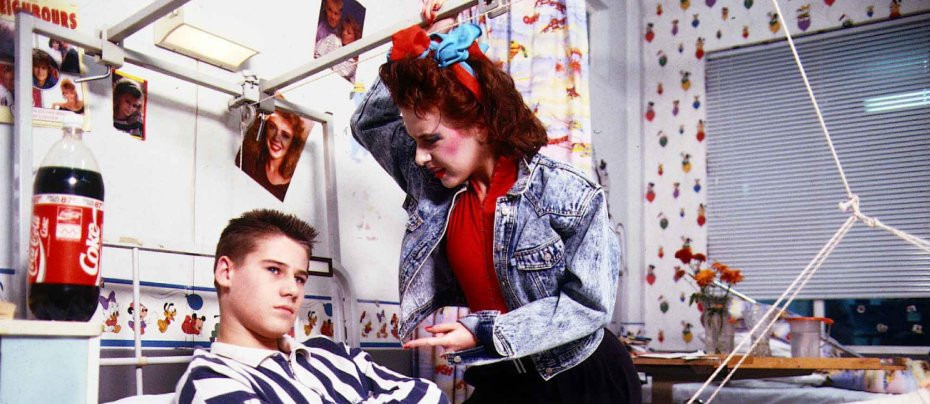
Desmond's
1989 - United KingdomIn the 1980s, Channel Four was no stranger to treading uncharted waters. Offer a sitcom based in a hairdresser to ITV or the BBC and they would most likely have imagined blue rinse brigades gossiping under the dryers. When writing debutant Trix Worrell offered a new sitcom idea based in exactly that setting to producer Humphrey Barclay, it’s safe to say that what he had in mind was a very different show to the immediately obvious options. The pitch was focussed on an entirely black cast playing a West Indian family and set in a barber shop in Peckham. It went on to become one of Channel Four’s most successful home grown comedies. Desmond’s was set to become a ground-breaking hit.
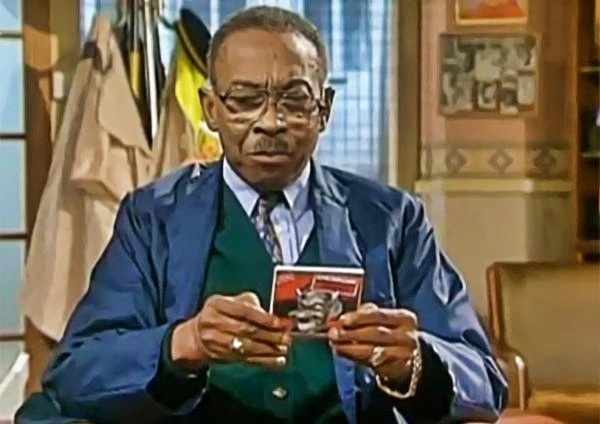
Meet Desmond Ambrose, ‘57 and still handsome,’ played by Norman Beaton. He runs Desmond’s, a barber shop that is less of a hair dressers and, in the words of Desmond’s wife of 30 years Shirley (Carmen Monroe), more of a bookie and a social club. The principle reason for this is the stream of regular customers who don’t come to have their hair cut, they are just there as a central point in their social lives.
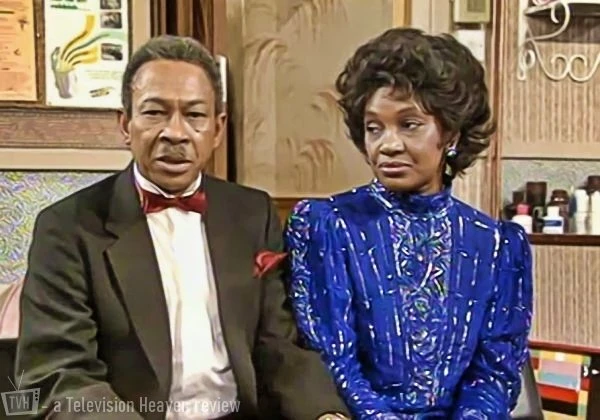
Desmond and Shirley have different ambitions in life. Shirley believes she gave up everything to marry Desmond and start a family, at a time when he dreamt of becoming a successful musician, but now the kids are almost all adults, she wants to get some life back into her days. Desmond is not so sure. He says he wants to rest, build a house on a plot of land back home in Guyana and retire. Quite how he intends to fund this dream is unclear, as his barbers is largely absent in paying customers, in part due to Desmond not in fact being much of a barber. As Shirley points out, they are no closer to the dream of building that house in 1989 than they were in 1969.
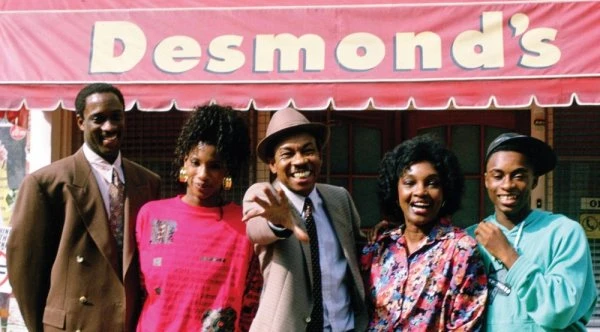
The Ambroses have three offspring, Gloria, Sean and Michael. Sean (Justin Pickett) is still at school when we first meet him, rapping his way through life. Gloria (Kim Walker) is keen to meet her ideal man, depending on her best friend Louise for advice and counsel as she dreams of becoming a fashion writer. Louise (Lisa Geoghan) recognises the value of Desmond’s, commenting that, ‘this is more than a barber shop Mr Ambrose. This is a community centre…a confessional, a drop-in.’ Michael (Geff Francis) is the eldest of the three, looking to progress his career by becoming a bank manager. Desmond has little time for him, believing he has sacrificed his roots to progress his career.
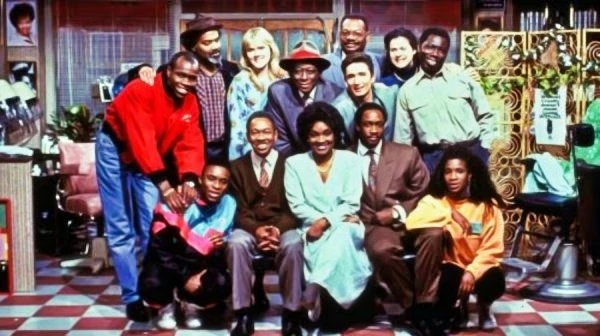
Despite the three offspring all offering different challenges for the Ambrose parents, the best supporting characters are the regulars that drop into the barbers more often than the barflies Norm and Cliff did in Cheers. Augustus Grant (Ram John Holder), known throughout as Porkpie, has been friends with Desmond since their days in the same band back home in Guyana. He comes to the barbers for the social scene, preferring to play dominos, gamble, booze and share stories than have his hair cut, something he would much rather not have happen at the hands of Desmond.
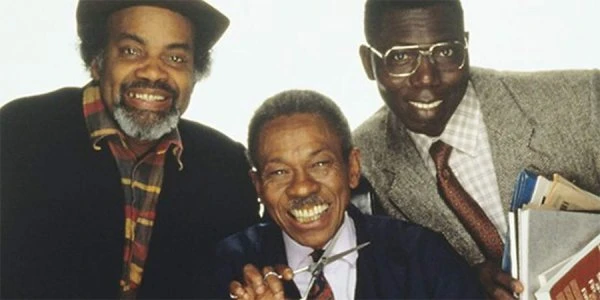
Another regular social arrival is Matthew (Gyearbuor Asante), a man portraying a superior intellect as he goes through his life lessons. He offers a rather superior personality, claiming greater intelligence than those around him, but clearly lacking in day-to-day life skills. ‘There’s an old African saying…’ is his common opening of an alleged pearl of wisdom, but he’s frequently critical of West Indian wisdom in deference to his own African roots. When Porkpie bemoans that black people don’t have any business success in England, Michael interjects a correction that it is merely West Indians that don’t have any – ‘some Africans are extremely good businessmen.’ At the opposite end of the intelligence spectrum is The Peckham Prince, Lee (Robbie Gee). Far less intellectual, he is initially presented as a boxing prospect, convinced he will one day floor Lloyd Honeyghan. His is very much a role in the Del-boy/Private Walker ilk as he always knows a deal.
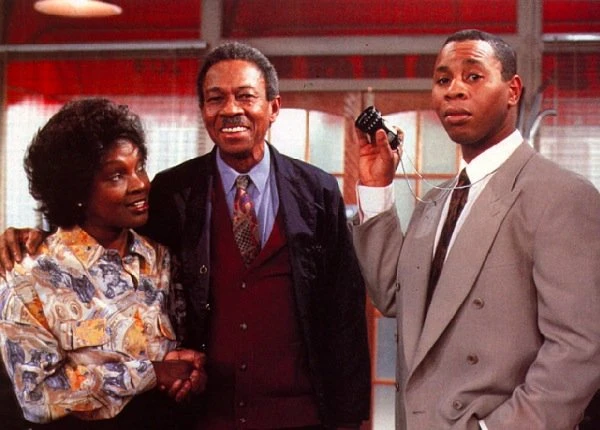
The trio of regulars arrive for tea and toast from Shirley at the start of every day. Shirley battles away as she rebels against the stereotypical role of a wife while still trying to keep the three children and Desmond’s business on track. Desmond himself is a somewhat powerless figurehead. Shirley is the brains behind the pairing as Desmond stumbles through life, hoping to achieve his returning home dream, but rarely prepared to change his life in order to prosper. It’s in stark contrast to his family, all of whom are doing things to achieve their own dreams. Shirley enrols in French classes in order to train her mind, Michael has designs on becoming manager at the bank, while Sean is targeting a university education.
Desmond’s works incredibly well on many levels. The most obvious of course is its almost entirely black cast. Beaton and Monroe had worked together before in 70s sitcom The Fosters and their partnership here is utterly believable and has a warmth at its core. This being Channel Four in the 80s, there is of course recognition of the changing focus of society. Desmond is particularly unimpressed at Michael’s apparent selling out in the yuppy era as he pursues his career at the bank and refers to his parents as mother and father.
But beyond all other elements, Desmond’s works because it is a warm comedy about family life. The barbers just happens to be the venue, but it could have been any number of things. The core of the success is the social focus of the community in Peckham. Writer Trix Worrell wanted to present a more positive image of black people in London than the headline writers of the day would have you believe existed, saying that he wrote the series primarily for white people.
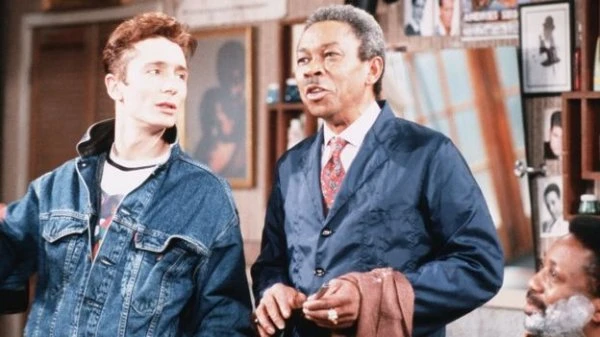
Six series of Desmond’s were made and there is a tinge of sadness looking back at them now. Beaton was a roaring success at the heart of the show, but reflecting his character, he wanted to go home to Georgetown for his retirement. It was a cruel irony that he was taken ill barely setting foot off the plane and died within hours of his arrival home for Christmas in 1994. Channel Four controller Michael Grade had apparently initially baulked at the idea of naming the show after one character as it could be restrictive should the actor pass away. It was a horribly prophetic comment, and although a spin-off called Porkpie was briefly turned to, the warmth of Desmond’s could not be recaptured. So bask in the reruns. It’s aged well, despite being reflective of perceptions of black family struggles in Britain in the 1980s, and that’s great credit to the heart that ran through its core that beats as strong now as ever.
Seen this show? How do you rate it?
Seen this show? How do you rate it?
Published on July 12th, 2021. Written by Brian Slade for Television Heaven.



